Migrants: Remembering Oct. 3 and The 360 Lampedusa Dead
TREVIGNANO ROMANO – Trevignano is a small town north of Rome with a surprisingly big cinema tradition dating back to the Thirties. This Sept. 25-29 it hosted a five-day festival of debate and documentary and fiction films from around the world dedicated to migration. On view were such outstanding films as Machan (Buddy) by Italian director Uberto Pasolini, based on the true story of Sri Lankan migrants who faked membership in a handball team in order to obtain visas for Germany. Forced to play in a real tournament, the “team” lost every match, before disappearing into the woodwork just as German police caught onto the fraud. Other films showed migrant realities in Belgium, France, Mexico, and South Korea, among others.
The Trevignano Film Festival, whose chief organizer was journalist Corrado Giustiniani with
the participation of actors Carlo Verdone and Monica Guerritore, was timed to draw attention to the first anniversary of the drowning Oct. 3, 2013, just off the coast of Lampedusa, of some 360 migrants arriving via Libya from Eritrea, Somalia and Ghana. When the 66-foot fishing boat into which they were crammed began to sink within sight of Lampedusa, a man set fire to a blanket to draw attention. The flames ignited gasoline, and the migrants shifting to escape the fire overturned the burning boat.
That disaster did not go unnoticed. On July 8 Pope Francis had already visited Lampedusa to lay a wreath in the water for those who had lost their lives, and on Oct. 3 he tweeted a prayer for these new victims. The then premier Enrico Letta similarly tweeted. Jose Barroso, European Commission president, said that the disaster should be a “wakeup call to increase solidarity.” To save lives, Italy itself mounted a unique Mediterranean rescue mission, called “Mare Nostrum.” At a cost of over $12 million monthly (according to Rai News), during this past year Mare Nostrum has rescued some 40,000. (For the Italian Navy’s account in English with photos see >>> ).
In what is an absolutely unprecedented situation, some 135,000 migrants have flooded into Italy so far this year. Many are women and children. In 2012, there were 5,232 unaccompanied children; this year the number has soared to 9,700. A chief reason is war, and UN statistics show that over the past year 11,000 individuals entered Italy from Syria alone. “Let’s be honest: the arrival of migrants is no longer an ‘emergency.’ It is the new norm,” said one of the Festival speakers flatly. “It is an everyday, regular occurrence, which we have to learn to treat as such.”
Italy has repeatedly asked the EU countries for help. Carlotta Sami, spokesperson for the United Nations High Commission for Refugees (UNHCR), told the Festival audience that “Mare Nostrum has been a unique help,” and that cooperation with other European countries is increasing. However, what seems to be arriving is criticism and a move simply to block migrations through a pan-EU military force called “Frontex Plus,” slated to begin patrolling Mediterranean waters by late November though exactly what it will do remains uncertain. Its official goal of “border management” excludes “humanitarian” aid. Utilizing at least 10 ships and four airplanes, it will not enter international waters.
If the aim is simply to block migration and return migrants to their homelands, this overly simplistic solution fails ignores the realities of the migration. “Most of those arriving have a legal right to request exile,” Sami pointed out. In a brief interview she also told me that the governing chaos in Libya has frustrated efforts to block the smuggling racket there.
Some accuse Mare Nostrum of attracting an excessive number of migrants to Italy specifically because other Mediterranean countries turn them back. Germany laments that only half of those arriving in Italy are identified, meaning that during the past year some 70,000 unidentified individuals simply disappeared. said Sami. “The Italian government knows it must get the data on each one, but many refuse to give their fingerprints, especially the women. It is hard to force them to do so,” she said. Even some of the unaccompanied minors have been expelled and repatriated.
Why do they refuse? Because the current law known as the Dublin Regulation establishes that, once fingerprinted, the individual cannot leave that country, and if he tries, will be sent back. However, the vast majority of those arriving have legally resident relatives, including husbands, whom they will be joining in Northern Europe; if fingerprinted in Italy, they cannot leave this country. Similarly, the risk of Jihadists hiding among them, as some news accounts predict, is something of a red herring, and the experts here point out that most of those arriving take l8 months at least to do so.
Moreover, if returned home where they are identified, relatives risk being punished. One of those sent back “home” was interviewed in a courageous documentary, made by Valerio Cataldi for Tg2 Dossier, La Neve per la Prima Volta (The First Time Seeing Snow), shown at the Festival. A migrant interviewed in Sweden had fled from Eritrea only to be shipwrecked near Malta. From there he was shipped back to Eritrea and thrown into a remote island prison for one year. After the prison year he was sent into the Eritrean army and escaped to Sudan. There his application for a visa to Sweden was accepted. During his interview he showed his drawing of the terrible tortures to which he and the prisoners had been subject in Eritrea, his homeland.































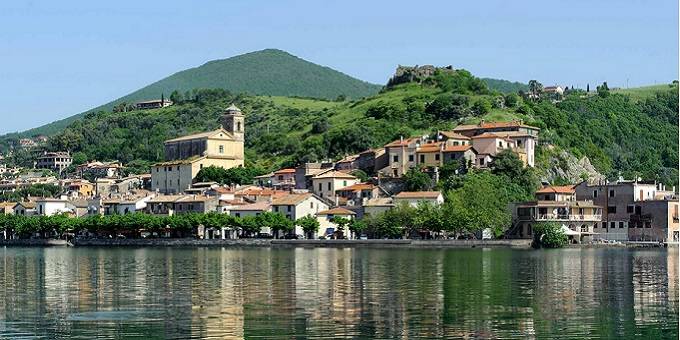
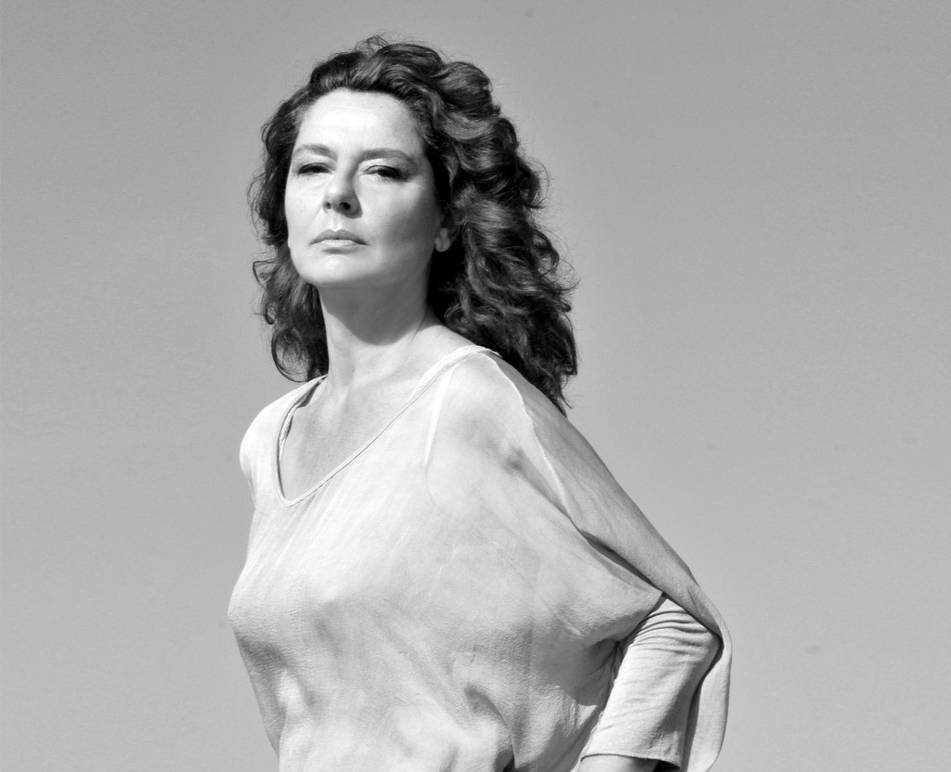
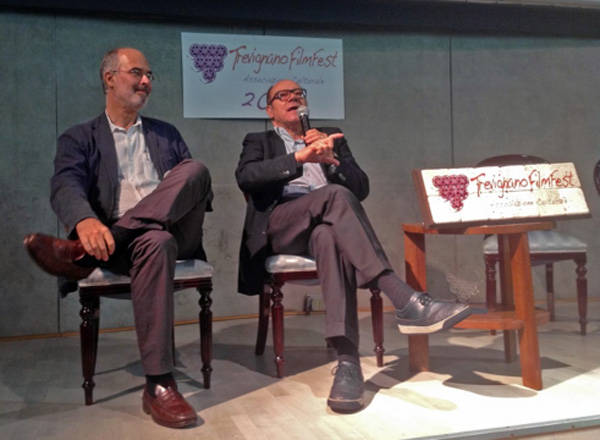





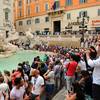
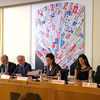
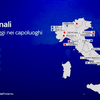
i-Italy
Facebook
Google+
This work may not be reproduced, in whole or in part, without prior written permission.
Questo lavoro non può essere riprodotto, in tutto o in parte, senza permesso scritto.